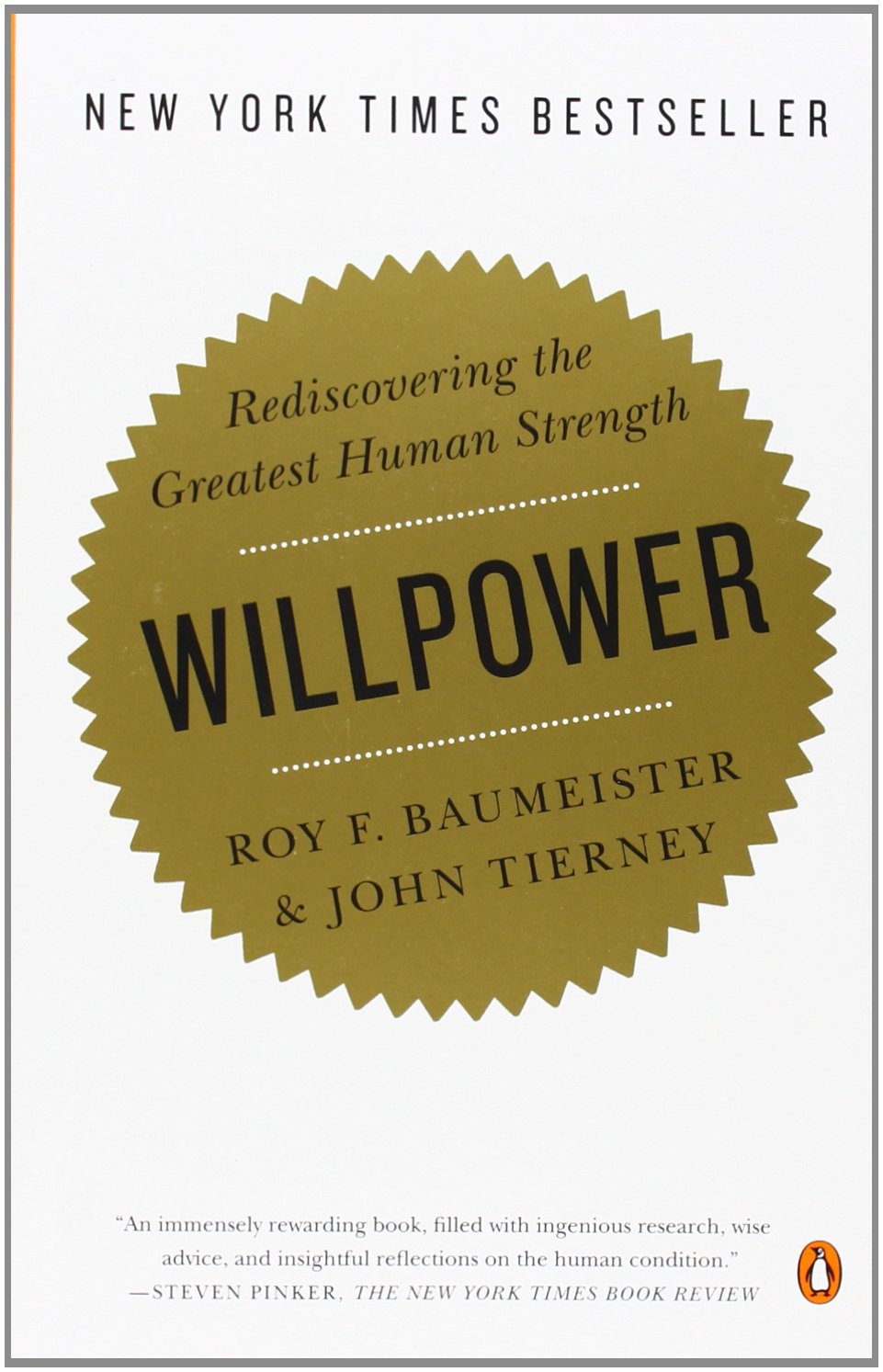The next informative text was Willpower: Rediscovering The Greatest Human Strength by Roy Baumeister and John Tierney.

These two delve into the science of self-control: Why it is important, how much we have of it, how it is fueled.
They posit a theory that humans are social for survival purposes, and in order to get along, one needs TONS of self-control. We can't all do whatever we want and expect to have pleasant familial/neighborly interactions.
They say, up front, that it is impossible to alter more than one behavior at a time, so don't go there (as our mussar seforim insist). This New Year should not begin with more than one item that requires fixing. Whether it is an unhealthy behavior like smoking or a toxic behavior like impatience/screaming, only one can apply at a time.
The brain does not have separate categories for willpower; there is only one well to draw from, no matter the application. If one exhausts the supply by not killing a co-worker, for instance, h/she may come home that evening and fight with the spouse over a mildly annoying quirk.
Additionally, one must we well-nourished and well-rested in order to have self-control since—get this—it feeds on glucose. Many who commit criminal acts have been found to be hypoglycemic (ergo the "Twinkie Defense"). That's why implementing self-control can often be exhausting; it sucks the life out of you by plowing through your physical energy supply. (Before you get excited, the best sources of glucose are from sensible proteins and vegetables, not Oreos.)
Deliciously, a lot of their scientific conclusions are echoed by our rabbanim, as heard in this shiur (cheat sheet: instead of telling oneself, "I will not eat that kakosh," say instead, "I'll have kakosh later." That fools the brain into a form of satiety, and, when the opportunity to kakosh arises, one won't necessarily even want it anymore. For reals).
Cool, huh?
The book is jammed with more awesome revelations, like self-control leads to good self-esteem, not participation trophies.
Deliciously, a lot of their scientific conclusions are echoed by our rabbanim, as heard in this shiur (cheat sheet: instead of telling oneself, "I will not eat that kakosh," say instead, "I'll have kakosh later." That fools the brain into a form of satiety, and, when the opportunity to kakosh arises, one won't necessarily even want it anymore. For reals).
Cool, huh?
The book is jammed with more awesome revelations, like self-control leads to good self-esteem, not participation trophies.
4 comments:
Thanks for this, it's very helpful. The last few months I've been trying to change too much, mental health-wise, and getting nowhere. Elul/Tishrei has encouraged me to slim it down to one main change (replace my toxic self-critical inner monologue with an accepting one), although I remain aware of the other areas that need work so I can work on them as and when.
I'm not sure about postponing desire, though; I find it sometimes leads to extra desire when the postponed time comes around. Maybe that's just me.
Postponing desire works because at a later time the desire isn't as strong. We get distracted by other things. We're fickle beings. "Extra desire" usually doesn't come from postponed desire, it comes from another additional urge...
DS: Forgive thyself. Forgiveness is a too-way street, like one's ability to love only goes so far as one's (healthy) self-love.
SPDR: Look, cookies! :P
I know. It's really hard to forgive myself, though. I take life very seriously and find it hard to believe I deserve forgiveness. I know that this goes back to a difficult childhood where I was made to feel responsible for frightening things that weren't my fault, but knowing that doesn't make the guilt feelings go away. As I say, it's my project for 5777.
Post a Comment